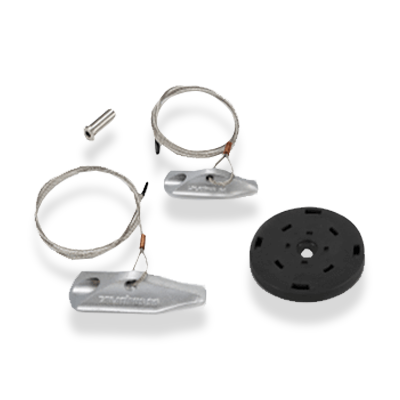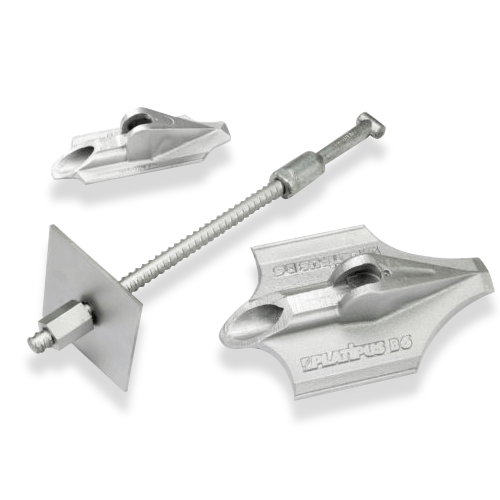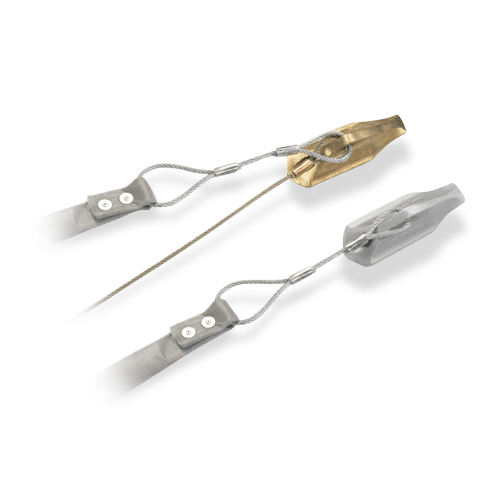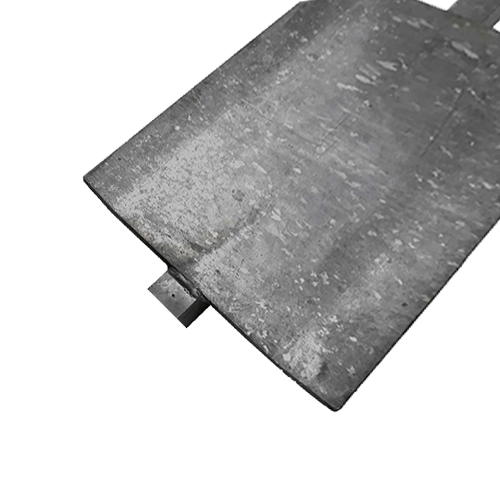Platipus® ARGS Anchors
Platipus® Anchors has over 30 years experience and has proven that the combination of Percussion Driven Earth Anchors (PDEA’S®) and a high strength facing material to support the load generated by the PDEA will stabilise and prevent erosion in these applications.
Stabilising slopes offer significant challenges. The lack of deep-rooted vegetation, excess water, poor drainage, and over steepening often makes them susceptible to erosion or instability.
Platipus Anchors has proven that with many decades experience the combination of PDEA’s and a high strength facing material to support the load generated by the PDEA will stabilise and prevent erosion in these applications.
The Platipus ARGS® range consists of three main anchor types:
Platipus S2 Anchor
The Platipus S2 ARGS PDEA assembly comes in a variety of configurations with up to 1m of 3mm stainless steel wire tendon, two sizes of HDPE load plate and either a copper ferrule or wedge grip option. The anchor system should be driven through the surface covering material to a minimum depth of 450mm to provide an ultimate holding capacity of up to 250kg. Common facings used with Platipus S2 Anchors include: Turf Reinforcement Matting, Turf Pavers, Geotextiles, and HDPE Coverings.
Platipus S4 & S6 Anchors
The Platipus S4 ARGS PDEA is the perfect solution for granular/non-cohesive soil. The larger S6 ARGS should be used in cohesive conditions. Both assemblies include a length of 4mm stainless steel wire tendon, a choice of load plates and a stainless steel conical wedge grip. They should be driven to a minimum depth of 750mm beyond the failure plane and have an ultimate holding capacity of 1000kg. Anchor depth, spacing and loads should be determined by a qualified Geotechnical Engineer. Common facings used with Platipus S4 & S6 Anchors include: High Performance Turf Reinforcement Matting (HPTRM), high strength Geotextiles & Geogrid, and Rockfall Mesh.
Platipus®, ARGS® and PDEA® are Registered Trademarks of Platipus Anchor, registered in England.
Downloads
- Anchor Load Software
- Product Information
- Installation
Frequently Asked Questions
Non-cohesive soils are stronger soils (dry crumbly) and therefore better to work with. Cohesive soil is not as good as there is a lot of water in the soil (clay soil type).
No – the anchor itself does not fail, the soil fails, and therefore an engineer must be involved to determine the type, length and spacings of the anchors.
Anchoring can be used for anything. Most common are TRM (turf reinforcement matting), walls such as gabion walls.
Anchors help with stabilising:
- Surface erosion and scour protection
- Flood protection and Slip protection
- Flood storage ponds
- Pipelines
- Portable buildings
Geo’s have a crimp lock whereas ARGS’s have a wedge lock.
Yes. Contact us for more information.
Yes, in some situations. The best way is to get as much detailed information as possible so we can offer a solution. Contact us and we can help you out.
Benefits & Features
- Portable buildings/ structures
- Buoyancy control/pipelines
- Retaining walls and slope stabilisation
- Marine applications
Platipus® ARGS Anchor Installation
Try our interactive installation overview.
Use your mouse to navigate the scene, click, drag and zoom around at your own pace. Click on the numbers to further inspect the process.
Please note: This is only a conceptual overview of installation and is not an instruction guide.
Specifications
Code
Product
Size






